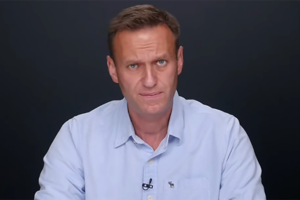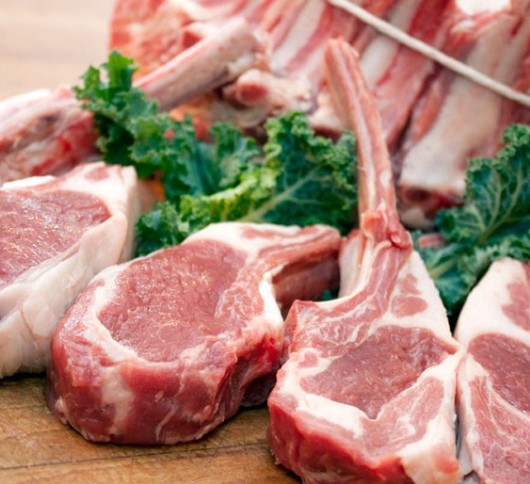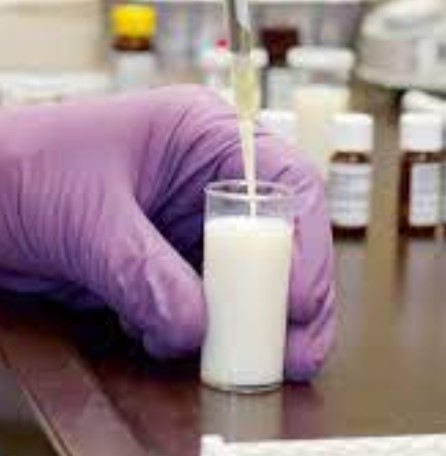The European Union decided not to change anything in relations with Russia

How the discussion of the Russian topic was prepared
On Monday, May 24, late in the evening, the leaders of 27 countries of the European Union at the first face-to-face summit this year held a debate on the future of relations with Moscow. They were going to discuss the strategy for contacts with Russia at the previous summit on March 23, but it was held in video mode and it was decided to postpone the discussion until a personal meeting.
The March summit was preceded by preparations, part of which was the February visit to Moscow of the head of the European External Action Service, Josep Borrell. The visit was marked by a diplomatic scandal. On the day of negotiations with Russian Foreign Minister Sergei Lavrov, it became known that three diplomats from European countries were expelled from Moscow: the Russian side considered that their observation of uncoordinated protest actions violated the Vienna Convention on Diplomatic Relations. Immediately after Borrell's return to Brussels, the Europeans accused him of insufficiently tough defense of the interests of the European Union, including in the field of human rights protection (according to some European parliamentarians, he spoke little about the case of Alexei Navalny). The head of European diplomacy responded by pointing out that Russiadeviated from the path of democratic development, and did not rule out new sanctions against Russian individuals.
Borrell threatened to make proposals for new EU sanctions against Russia Politics
After a failed visit, the European Union imposed sanctions on six more Russians in March, to which Moscow responded by imposing retaliatory measures against eight people, including the President of the European Parliament, David Maria Sassoli, and the head of the Berlin prosecutor's office, Joerg Raupach. Moscow continued to accuse the EU of destroying cooperation mechanisms. Lavrov repeated more than once that it was Brussels that had frozen the dialogue, and it was in Moscow's interests to develop relations with individual countries of the association.
Nevertheless, shortly before the strategic debate, some EU representatives expressed the need to cooperate with Moscow. “We are ready for cooperation, we are laying the foundation for this through communications,” said German Foreign Minister Heiko Maas during the Potsdam meetings organized by the German-Russian Forum. Slovak Foreign and European Affairs Minister Ivan Korchok said in early May: "We must stop the negative spiral of our relations with Russia."
Foreign Ministers of Germany and Slovakia spoke in favor of dialogue between the EU and Russia Politics
On Monday, Luxembourg Prime Minister Xavier Bettel said that "the EU should avoid new sanctions against Russia and look for ways to de-escalate relations with it" (quoted by TASS).
Where did the European Union stop
The discussion of the Russian problem took place after the urgent discussion of the situation in Belarus. Both issues were discussed without the use of electronic devices for reasons of confidentiality.
The result was a condemnation of Russia's "illegal, provocative and subversive actions" against the EU, its member states and other countries. EU leaders also reaffirmed "the unity of the EU in the face of such actions" and expressed solidarity with the Czech Republic, which Russia, along with the United States, has included in the list of unfriendly states. However, in practical terms, it was decided not to change anything in relations with Russia yet. Commitment to the “Five Principles of Mogherini”, developed while serving as EU Representative for Foreign Policy Federica Mogherini and approved in 2016, was reaffirmed. The leaders also instructed Borrell to present a report with policy options for relations between the EU and Russia in accordance with these principles by the next summit in June 2021.
Sergei Lavrov proposed to separate the European Union from Europe Politics
Five principles of the EU towards Russia:
fulfillment of the terms of the Minsk agreements on Ukraine; strengthening relations with the Eastern Partnership countries and Central Asia; strengthening the stability of the EU, including reducing dependence on Russia in the energy sector; restoration of cooperation with Russia in some selected areas, for example, the Iranian problem or relations with the DPRK; support for the development of civil society in Russia, “support for contacts between people and exchange”.The European Union is not going to revise its strategy in the Russian direction, says Maximilian Hess, a researcher at the Foreign Policy Research Institute (FPRI). In the short term, two factors can be identified that impede the adoption of drastic decisions in a dialogue with Moscow. The first is the upcoming meeting between Presidents Vladimir Putin and Joe Biden, which will touch upon critical issues in relations between Moscow and the West. The second factor is the impending elections in Germany (they will be held in September). “Perhaps if Russia takes some new egregious actions or its intervention in the episode with the flight delay in Minsk is proven, then the EU can do something. But in general, I don’t think that the association will think about any strategic adjustments, at least until September, ”the expert explained.
Among the EU countries, there is no consensus on how relations with Russia can be adjusted, Hess said. “Countries such as Malta, Austria or Hungary do not see the point in increasing pressure on Moscow, including due to economic interests, while the Czech Republic and Poland are probably ready to think about tightening the approach,” the analyst explained.
The European Union remains Russia's main external trading partner: the country is in fifth place (according to 2019 data). Trade between the EU and Russia in 2019 amounted to $347 billion, in 2020 it fell to $219 billion.
The European Union does not have a clear strategy towards Russia at all, and the “five principles” are a reflection of a rather general political consensus among the member states of the association, Fyodor Lukyanov, chairman of the Presidium of the Council on Foreign and Defense Policy of Russia, believes. “There are countries that advocate an extremely tough approach, but there are also those who consider it unacceptable to burn bridges, for some countries the issue of dialogue with Moscow is not at all acute,” he told RBC. According to Lukyanov, circumstances are unlikely to arise in the near future that could force all 27 EU countries to unite around an unambiguous strategy towards Russia.
Economic considerations play a significant role in the dialogue between the EU and Russia, Lukyanov added. “Hard restrictions will directly harm a number of countries. In addition, the general economic situation in the EU is not cloudless, and no one wants to aggravate it with sanctions due to political reasons,” he explained. The general atmosphere in the dialogue between Moscow and the European Union is negative, but the parties are not ready to go further than harsh statements, Lukyanov summed up.




























































